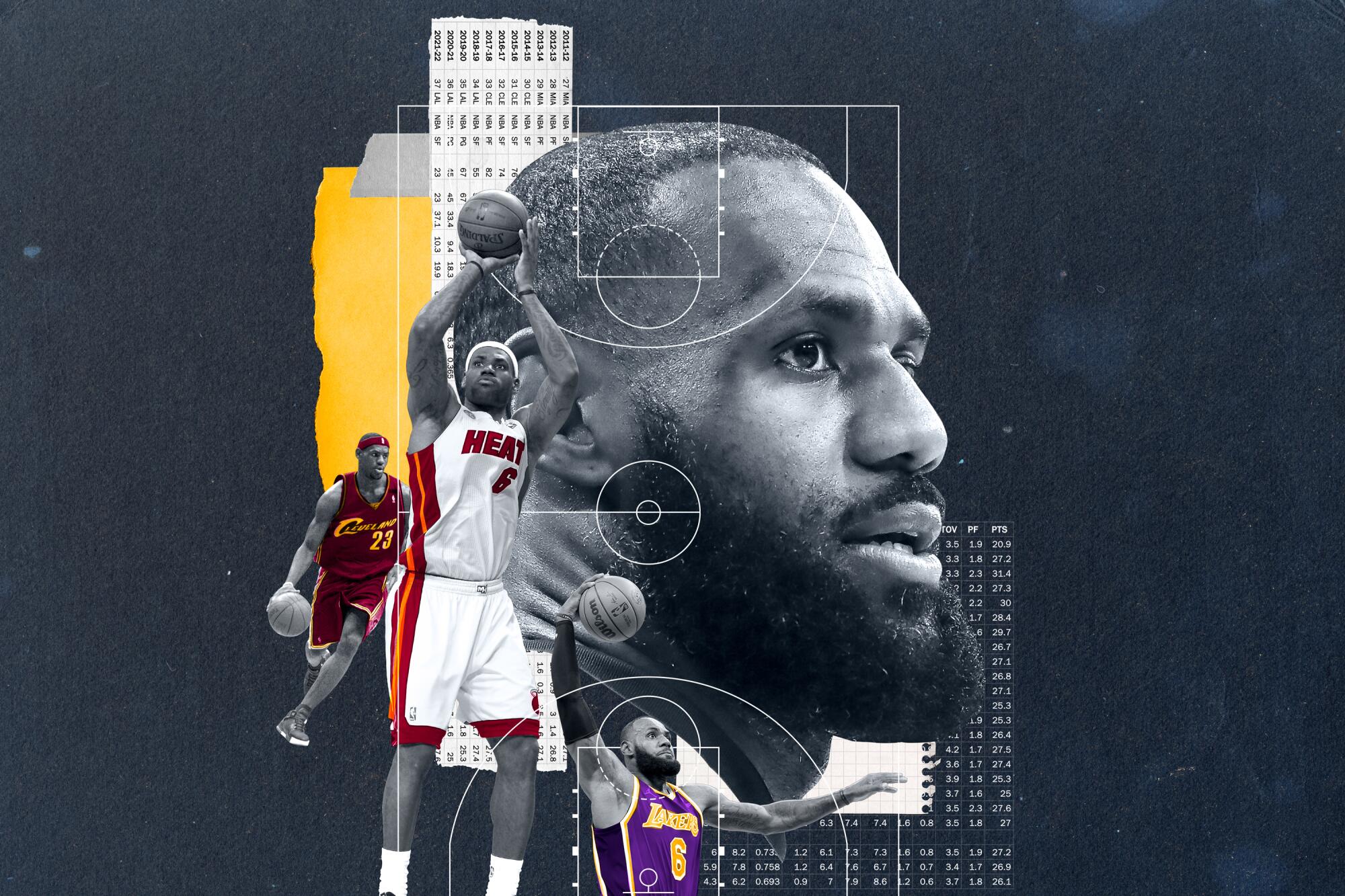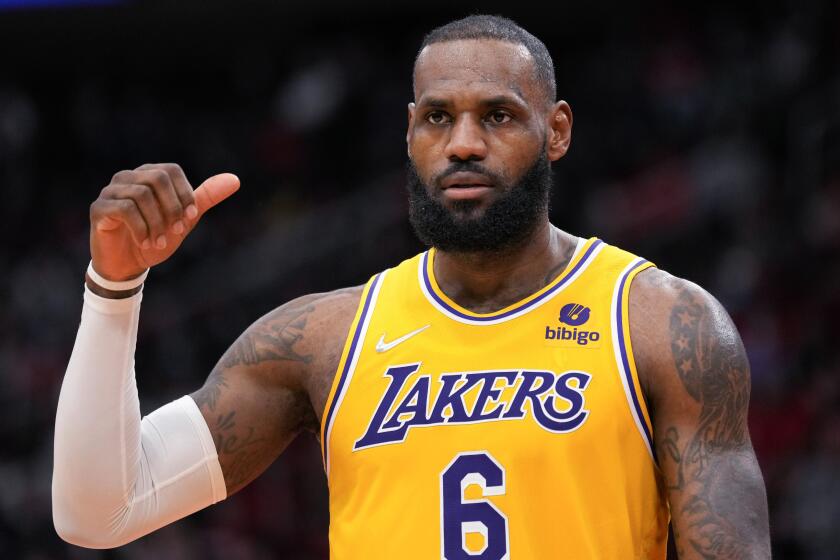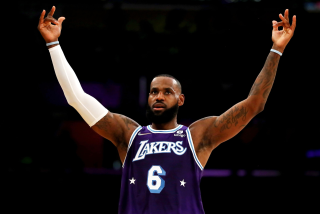
- Share via
Less than three weeks before turning 37, LeBron James became the oldest player to record a 30-point triple-double when he finished with 30 points, 11 rebounds and 10 assists against the Orlando Magic on Dec. 12. He topped his own record 16 days later with 32 points, 11 rebounds and 11 assists against the Houston Rockets in another milestone performance that put him past 36,000 points for his career. It was his fifth consecutive 30-point performance, a streak that included 39 points against the Brooklyn Nets on Christmas Day.
Even with some gray in his beard, The King can still rule his court.
James is shouldering a massive load for a reconstructed Lakers roster during his 19th season, and the wear and tear is starting to show. As the Lakers star celebrates his 37th birthday Thursday, we take a look at how his career has progressed through the years.
LeBron James declined to respond to an essay written by Lakers legend Kareem Abdul-Jabbar that criticized James for a social media post about COVID-19.
One of the few things left for James in his career is claiming the NBA’s all-time scoring record. Now on a six-game, 30-point scoring streak, James is 2,349 points behind Kareem Abdul-Jabbar, who scored 38,387 points in 20 seasons.
James is in his 19th season with no signs of impending retirement, which makes the chase for Abdul-Jabbar’s record more a question of “when” rather than “if.” Yet few of the game’s elite have maintained the type of production James is searching for this late in their careers.
Among the top 10 scorers in league history, most experienced a late-career peak in scoring between their 15th and 17th seasons followed by a swift decline. Abdul-Jabbar dropped from 1,846 points in his 17th season to 1,366 in his 18th. Kobe Bryant, the NBA’s fourth-leading scorer, had a 2,133-point 17th season shortened by an Achilles injury that led to the Lakers legend limping through the final three seasons of his career.
James is going through a similar decline. In his 15th season, the Akron, Ohio, native had the second-highest scoring season of his career. The following season, his first with the Lakers, his total points in the regular season dropped by 33.1%, from 2,251 to 1,505, the largest single-season drop in his career.
His scoring per game remains consistent — he hasn’t averaged less than 25 points since his rookie season — but where he has started to lose ground is his availability.
Since joining the Lakers, James has missed significant time because of injuries in three of four seasons, including a groin injury, a sprained ankle and this season’s abdominal strain. As a result, he has played in 75.7% of Laker games during his L.A. tenure. With the exception of the title-winning 2019-2020 season that was interrupted by the pandemic, when James played in 88 of the team’s 92 games, the All-Star forward hasn’t played in more than 67% of games in a Lakers season.
Before coming to L.A., James was an NBA iron man. He only once played in fewer than 90% of games in a season. During his two stints with the Cavaliers and his four-year tenure with the Heat, James played in 95.4% of games.
However, the one constant about James’ availability is that he has never missed a playoff game.
Even when James is on the court, his game is evolving to suit an aging skill set.
This is the first regular season in which James has taken more three-pointers than shots in the restricted area, continuing a recent trend of increasing his jumpers.
James took about 20% of his shots from beyond the arc in 2015-16. That number has risen to 37.8% this season while his shots in the restricted area fell from 48.7% in 2016 to 36% this season. James’ 18-percentage point increase in three-point shots in the last seven seasons outpaces a widespread trend in the league that has seen the average go from 28.5% of shots coming from three-point range in 2015-16 to 40.3% this season.
In 2020-21, when the Lakers attempted to defend their NBA title, James took 35.5% of his shots from three-point range compared to 35.2% in the restricted area during the regular season and playoffs, the first time he had taken more three-pointers than shots at the rim throughout a season. He tipped the scales in the postseason, when he took 48 three-pointers compared to 43 shots in the restricted area. In the regular season, he took 34.8% of his shots from the restricted area compared to 34.6% from three.









